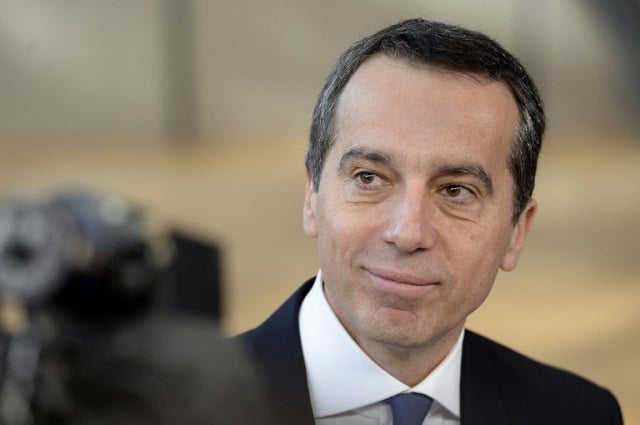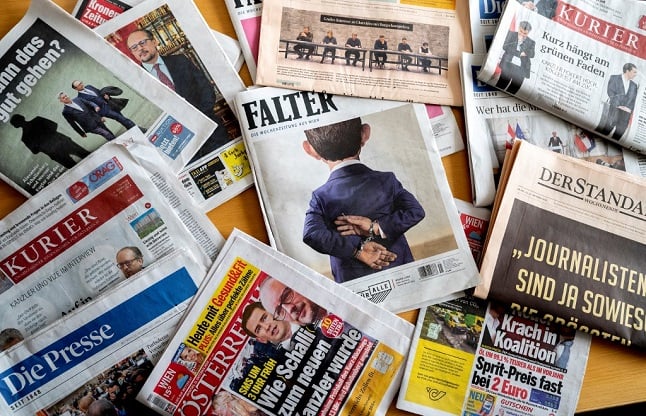“There will with certainty be elections in the autumn this year, I expect,” Kern said during a televised talk show on public broadcaster ORF.
“It has to be accepted that the OeVP put an end to this coalition on Friday live on television. They made it quite clear that they don't want (to be in coalition) any more,” Kern said.
Austria's unhappy “grand coalition” between Kern's centre-left Social Democrats (SPOe) and the centre-right People's Party (OeVP) was meant to govern until September 2018.
After months of failing to agree much in the way of reforms to boost Austria's lagging economy, the head of the OeVP, Reinhold Mitterlehner, resigned last Wednesday.
Two days later his likely successor, Foreign Minister Sebastian Kurz – who is expected to be appointed party leader later Sunday – called for the coalition to end and for early elections.
If the vote happens it will set up another nail-biting election in Europe in 2017 following those in the Netherlands and France and the ones scheduled for Britain and Germany.
It could see Austria's far-right Freedom Party (FPOe), currently riding high in opinion polls, enter or even lead a new coalition with the SPOe or the OeVP.
Last year the populist, anti-immigration FPOe's Norbert Hofer came close to being elected to the largely ceremonial but coveted post of Austrian president.
READ ALSO: The rise, fall, and rise again of Austria's far-right



 Please whitelist us to continue reading.
Please whitelist us to continue reading.
Member comments